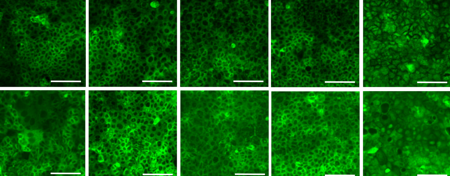Innovative Gut-on-a-Chip Platform Paves the Way for Enterotoxin Research Breakthroughs

Leiden, March 11, 2024 – Researchers from MIMETAS have unveiled a study, published in Nature's Scientific Reports, to address the detrimental effects of enterotoxins on the human intestinal epithelium using a high-throughput gut-on-a-chip platform.

Enterotoxins, primarily affecting the intestines, pose a severe risk to food safety and have implications for various medical conditions. Traditional research methodologies have fallen short in providing robust and translatable models that can accurately characterize toxin-specific epithelial damage. The study highlights the urgent need for innovative approaches to tackle the challenges posed by enterotoxin contamination and their potential clinical applications.
The researchers successfully demonstrated the application of MIMETAS’ OrganoReady® Colon Caco-2, ready-to-use Caco-2 tubules that mimic the human intestinal epithelium, to study the distinct pathogenic mechanisms of various enterotoxins, including nigericin, ochratoxin A, patulin, and melittin. The toxins induced a dose-dependent reduction in the model’s barrier permeability with enhanced sensitivity, providing a more accurate depiction of enterotoxin effects compared to conventional methods.
The research underscores the model's potential as a multi-parametric and high-throughput tool, bridging the gap between current enterotoxin research and translatable in vivo models of the human intestinal epithelium. The findings indicate that each toxin triggers distinct responses, reflecting their varied pathogenic mechanisms. Notably, melittin and ochratoxin A exhibited significant cytotoxic effects, whereas nigericin caused unique changes in cell morphology.
Looking ahead, the study opens up new avenues for future research and the potential development of therapeutic interventions. The gut-on-a-chip platform could revolutionize the screening of enterotoxins, enhancing our understanding of their mechanisms and facilitating the discovery of new treatments to mitigate their harmful effects. Furthermore, this innovative approach offers a promising alternative to animal models and traditional in vitro methods, aligning with ethical considerations and the need for more accurate human-relevant models.
